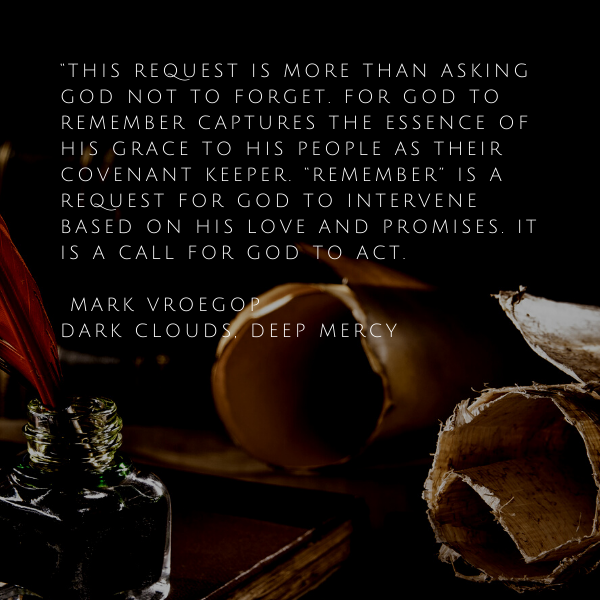
➼ Read lamentations 3. Look at how Jeremiah’s mindset shifts with the words “Yet” and “But”. These are crucial turning points in lament, often being the pivotal shifts in our understanding of the truth
➼ Identify the truths that Jeremiah rehearses. Are there other truths you need to rehearse?
Rewrite them as declarations in your own words as you preach them to your heart.
In the waiting, we have conversations with God. Jeremiah’s lamentation does not end with any resolution but it serves as a model on how to find grace and hope while waiting for God. These are the appeals he makes before God’s throne of grace in this final chapter of Lamentations.
Remember, O Lord…
Lamentations 5:1
Lord, remember what has happened to us. See how we have been disgraced!

➼ As you reflect on what you have asked God to do and how you have asked him to act, which requests anchor themselves on who God is and his character as a promise keeper, and which requests anchor themselves on specific outcomes?
But You, O Lord, Reign Forever…
Lamentations 5: 19
But Lord, you remain the same forever! Your throne continues from generation to generation.

➼ What does it mean that God is sovereign over all the things you’ve brought before him? How is this comforting and in what way is it hard to accept?
Restore Us to Yourself, O Lord…
Lamentations 5: 21-22
Restore us, O Lord, and bring us back to you again! Give us back the joys we once had!

➼ Review your laments in light of what Jesus won for you on the cross. What hope does it bring you that Jesus is sitting on God’s right hand pleading on your behalf?
➼ What opportunities are before you to walk with people in your community who are feeling hopeless? How can you walk with them in their pain and share the hope you have in Christ?
